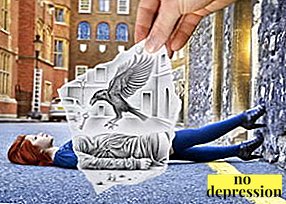It is said that disappointment is a sign of maturity. Indeed, after the collapse of illusions, there comes a period of restoration, gratitude and enjoyment from the very process of life. But cynics all their life rely on the disappointments of the past, renounce feelings and mock at the most sacred things in the human soul. Today it is hard to say: is cynicism good or bad? What makes a man a cynic? How to communicate with such a person? The article contains answers to questions and a short dictionary of cynicism.
What is cynicism
Cynicism is a personal position, which is expressed in a defiantly contemptuous attitude towards human culture, the rules of morality, traditions and norms. Cynicism bind with rudeness, rudeness, immorality, sarcasm. The closest synonyms are: heartless, lack of culture, lack of spirituality, lack of empathy. And it is not surprising, because the term "cynicism" comes from the Greek word "cynisme", which literally means" dog's lifestyle of a person. "
In the understanding of modern people, cynicism is a negative characteristic. However, it all started with philosophy. In the original meaning cynicism is the ancient Greek teaching of the cynic school of philosophy whose followers ignored conventions and tried to get rid of them. In the XIX century, the word lost its philosophical meaning and came into use in the modern sense: neglect of the value system of a particular society.
It is hard to say for sure: cynicism is good or bad? On the one hand, a cynical person publicly criticizes stereotypes, openly calls things by their proper names. A logical approach to life helps him achieve success in his career or in the political arena. But there is a flip side of the coin - malicious cynicism. This applies to people who, with their caustic remarks and edifying tone, provoke scandals or disagreements.
The history of the concept of "cynicism"
The history of cynicism begins in the philosophical school of cynicism in the V century BC. The founder of the school of cynics was Antisfenwho believes that everyone has the right to live according to his philosophy. Antisthenes preached the advantage of rationalism over emotions, the benefits over mental and spiritual experiences.
Developed and popularized teaching cynics Diogenes of Sinopwho considered hypocrisy any social norms. Diogenes and his students lived in extreme poverty, preached the superiority of practice over theory, openly mocked everything that made the life of compatriots enjoyable. The surrounding called them rude, they called themselves cynics.
Today, cynicism has lost its original meaning, but remains one of the most discussed topics. New interest in teaching cynics associated with the ideas of "neokinik" Friedrich Nietzsche. In 1983, the German philosopher Peter Sloterdijk published the book Critique of Cynical Mind, in which he considers the phenomenon of cynicism from the point of view of philosophers and heroes of works of art: Mephistopheles from Goethe’s Faust, the great inquisitor from the Brothers Karamazov, Fyodor Dostoevsky.
Cynicism has a sequel - nihilism or denial of cultural property. These concepts differ only in the degree of aggression. The nihilistic approach does not allow mockery of morality, but is also associated with a distrust of human kindness, selflessness, and internal values.
Verge of cynicism
Cynicism is inseparable from the internal morality of man, therefore it is difficult to rationally explain. It is not for nothing that the term “cynical” in combination with other words is used in negative assessments: from a cynical view to a cynical attitude to life and a crime committed with particular cynicism.
The essence of heartlessness is many-dimensional. To differentiate between two types of cynicism:
Professional cynicism does not cause much enthusiasm, but it is often treated with understanding. It refers to professions where an overdose of "heavy" emotions over time includes the protective mechanisms of the brain. For example, for doctors, teachers, everything painful, frightening, unpleasant becomes habitual. It is believed that in some professions without immorality it is impossible to succeed. Such specialists include mediums, insurance brokers, marketers, network sellers.
Everyday cynicism manifests itself in a pragmatic, but immoral attitude towards everyday life. As all immoral, it is carefully hidden, but manifests itself in clashes on the subject of faith, traditions, and gender issues. Today people are thinking about the everyday heartlessness of adolescents, politicians, political scientists, journalists, and writers.
There is even a brief dictionary of the varieties of cynicism by level of complexity:
- Normal - manifested distrust of society.
- Greedy - obsession with financial issues.
- State - expressed by the attitude of the state to its citizens.
- Ironic - the use of a whipping comparison or cruel joke.
- Hard - manifested by the use of "black humor".
- Television - expressed in the "kind" of news, advertising.
- Youthful - occurs in adolescents who deny any morality.
- Ardent - used every minute and for any reason.
Cynicism is sometimes confused with arrogance. But these are different concepts. Arrogance is a position in relation to another person, which manifests itself from insecurity in their own superiority. The cynical worldview is formed from within and is related to morality. Do not confuse cynicism with sarcasm. These concepts have different wrappings: sarcasm spurs, cynicism is rude and insulting.
Where does the defensive cynicism come from?
It is said that cynical people are former romantics and idealists, disappointed in love. But not every disappointed person becomes soulless. Cynicism is not embedded in our genes, it does not appear out of nowhere, even after a big disappointment. It is a state of "no return," which becomes a lifestyle and mindset. Psychologists compare cynicism with a protective mechanism that acts as an anesthetic for emotional wounds.
What makes a man a cynic?
- Fear of rejection or depreciation. Acts as a preemptive strike on the principle of "do not touch me, I am dangerous."
- Disappointment. The basis of the insult lies expectations. If they do not make excuses, disappointment comes, the desire to make fun of everything that used to be expensive.
- Not lived pain. The deep essence of a cynical person's behavior is to make the other suffer and thereby share the common pain.
- Inability to cope with complex emotions. The reason for this is the usual confusion, panic of a person who cannot cope with grief, hatred, humiliation.
- Broken illusion of ideality. We live in delusions about ourselves, our parents, the surrounding reality. Sometimes lost illusions are so traumatic that they break personality.
- Inability to forgive others. The concepts of "forgiving" and "forgetting" are not the same thing. To forgive is to be free from resentment, and not to swallow the pain deeper and deeper.
- Inability to forgive yourself. Regret, guilt, humiliation not only haunt for years, but provoke stress, pessimism, contempt for everything around.
- Search for sympathizers. The moral of "tired romance" is best understood by the same soulless and resentful people. And they will not only understand, but will render a fitting rebuff.
How to communicate with a cynic
Attitudes toward cynical people in general can be called ambiguous. They produce an unpleasant impression not from the first or second time. Cynic men literally attract women like a magnet. After all, the charming villain from the point of view of biology is the alpha male. He is active, aggressive, unpredictable and strong. Happiness with such a person is possible only in the case when it is better with him than without him.
Believe that you will be able to rehabilitate a cynic? In vain. Outwitting or replaying the winning cynic is impossible. However, you can learn from him: expose the hypocrisy, openly express their opinions, defend their beliefs, not to succumb to manipulation.
findings:
- Cynicism is nihilism, which denies the existing value system.
- Cynics are not born, they become.
- Sometimes cynicism is the response of the psyche to heartache or heavy feelings: fear of loss, disappointment.
- It will be cynicism due to frustration or a means to prevent it - only you decide.
- Build a relationship with a cynic - how to walk in a minefield: dangerous, but interesting.



